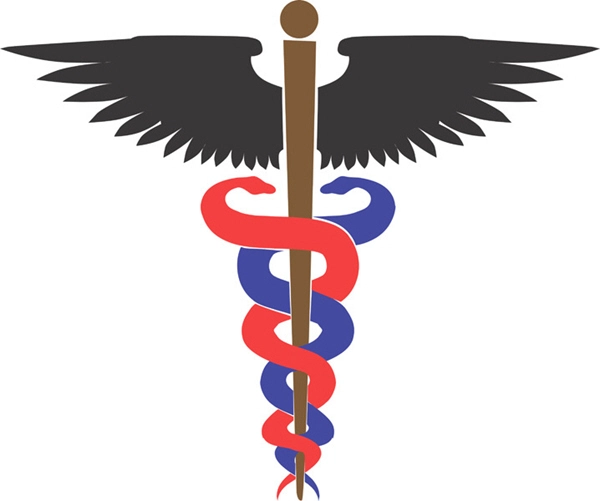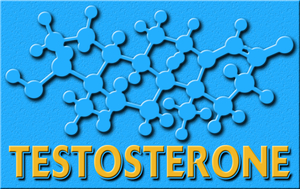Introduction
Triathlon, a multisport race that involves swimming, cycling, and running, demands a high level of endurance and resilience from its participants. For American male triathletes, maintaining peak physical condition is crucial to achieving competitive success. Sports medicine programs, which encompass a range of interventions from nutritional guidance to physical therapy, have been increasingly adopted to enhance athletic performance. This article presents the findings of a six-month randomized controlled trial that evaluates the effectiveness of sports medicine programs in improving endurance and reducing fatigue among American male triathletes.
Study Design and Methodology
The study involved 100 American male triathletes, aged between 25 and 45, who were randomly assigned to either an intervention group or a control group. The intervention group participated in a comprehensive sports medicine program tailored to their specific needs, which included personalized nutrition plans, strength and conditioning exercises, and regular consultations with sports medicine specialists. The control group continued their usual training regimen without additional interventions.
Endurance Enhancement
Endurance, a critical component of triathlon performance, was measured using the VO2 max test, which assesses the maximum amount of oxygen an individual can utilize during intense exercise. At the end of the six-month period, the intervention group demonstrated a significant increase in VO2 max levels compared to the control group. Specifically, the intervention group showed an average increase of 8.2% in VO2 max, while the control group only improved by 2.1%. These results suggest that the sports medicine program effectively enhanced the endurance capabilities of the participating triathletes.
Fatigue Reduction
Fatigue, another key factor affecting triathlon performance, was evaluated using the Profile of Mood States (POMS) questionnaire, which measures fatigue levels among athletes. The intervention group reported a significant reduction in fatigue scores over the six-month period, with an average decrease of 25% compared to baseline levels. In contrast, the control group experienced only a marginal reduction of 5% in fatigue scores. This indicates that the sports medicine program was successful in reducing fatigue among the triathletes, potentially leading to improved performance during competitions.
Nutritional Guidance and Performance
A crucial element of the sports medicine program was personalized nutritional guidance. The intervention group received tailored meal plans designed to optimize energy levels and support recovery. The results showed that the intervention group had better energy management during training sessions and competitions, as evidenced by their improved performance in time trials. This underscores the importance of nutrition in enhancing athletic performance and reducing fatigue.
Strength and Conditioning
Strength and conditioning exercises were another integral part of the sports medicine program. The intervention group engaged in regular strength training sessions aimed at improving muscular endurance and reducing the risk of injuries. The results indicated that the intervention group experienced fewer injuries and reported higher levels of muscular endurance compared to the control group. This highlights the role of strength and conditioning in supporting overall athletic performance and reducing fatigue.
Consultations with Sports Medicine Specialists
Regular consultations with sports medicine specialists were a key component of the intervention. These consultations provided the triathletes with personalized advice on training adjustments, injury prevention, and recovery strategies. The feedback from the intervention group was overwhelmingly positive, with many participants reporting that the consultations helped them better understand their bodies and optimize their training regimens.
Conclusion
The findings of this six-month randomized controlled trial demonstrate the significant impact of sports medicine programs on enhancing endurance and reducing fatigue among American male triathletes. The intervention group, which benefited from personalized nutrition plans, strength and conditioning exercises, and regular consultations with sports medicine specialists, showed marked improvements in VO2 max levels and reduced fatigue scores compared to the control group. These results underscore the importance of integrating sports medicine into training regimens to optimize athletic performance and support the health and well-being of triathletes. As the field of sports medicine continues to evolve, it holds great promise for further enhancing the capabilities of American male triathletes and other athletes striving for peak performance.
Contact Us Today For A Free Consultation

- Preventing Ankle Injuries in American Male Volleyball Players: A Comprehensive Guide [Last Updated On: February 18th, 2025] [Originally Added On: February 18th, 2025]
- Sports Medicine: Essential for American Male Triathletes' Performance and Health [Last Updated On: March 16th, 2025] [Originally Added On: March 16th, 2025]
- Wrist Injuries in Snowboarding: Types, Mechanisms, and Prevention for American Males [Last Updated On: March 17th, 2025] [Originally Added On: March 17th, 2025]
- Sports Medicine Innovations Aid American Male Rowers with Lower Back Pain [Last Updated On: March 17th, 2025] [Originally Added On: March 17th, 2025]
- Sports Medicine's Role in Preventing Overuse Injuries Among American Male Climbers [Last Updated On: March 18th, 2025] [Originally Added On: March 18th, 2025]
- Optimizing Recovery for American Male Martial Artists: Nutrition, Techniques, and Mental Health [Last Updated On: March 18th, 2025] [Originally Added On: March 18th, 2025]
- Sports Medicine's Vital Role in Injury Management for American Male Figure Skaters [Last Updated On: March 18th, 2025] [Originally Added On: March 18th, 2025]
- Sports Medicine's Crucial Role in BMX Rider Recovery and Rehabilitation [Last Updated On: March 19th, 2025] [Originally Added On: March 19th, 2025]
- Hamstring Injuries in American Male Sprinters: Treatment, Rehabilitation, and Prevention Strategies [Last Updated On: March 21st, 2025] [Originally Added On: March 21st, 2025]
- Sports Medicine Enhances Performance and Health in American Male Water Polo Athletes [Last Updated On: March 21st, 2025] [Originally Added On: March 21st, 2025]
- Surfing Injuries in American Males: Prevention, Treatment, and Sports Medicine Advances [Last Updated On: March 21st, 2025] [Originally Added On: March 21st, 2025]
- Sports Medicine Innovations Aid American Male Cyclists with Hip Issues [Last Updated On: March 21st, 2025] [Originally Added On: March 21st, 2025]
- Knee Health Strategies for American Male Ultimate Frisbee Players [Last Updated On: March 21st, 2025] [Originally Added On: March 21st, 2025]
- Sports Medicine Enhances Performance and Health in American Male Polo Players [Last Updated On: March 22nd, 2025] [Originally Added On: March 22nd, 2025]
- Sports MedicineTransforms CrossFit: Enhancing Performance and Safety for American Male Athletes [Last Updated On: March 23rd, 2025] [Originally Added On: March 23rd, 2025]
- Rotator Cuff Injuries in American Male Swimmers: Diagnosis, Treatment, and Prevention [Last Updated On: March 23rd, 2025] [Originally Added On: March 23rd, 2025]
- Preventing Shoulder Injuries in Lacrosse Goalies: Innovative Sports Medicine Techniques [Last Updated On: March 23rd, 2025] [Originally Added On: March 23rd, 2025]
- Sports Medicine Enhances Performance and Longevity in American Male Fencers [Last Updated On: March 23rd, 2025] [Originally Added On: March 23rd, 2025]
- Sports Medicine's Role in Enhancing American Male Badminton Players' Careers [Last Updated On: March 23rd, 2025] [Originally Added On: March 23rd, 2025]
- Managing Tendonitis in American Male Tennis Players: Sports Medicine Approaches [Last Updated On: March 23rd, 2025] [Originally Added On: March 23rd, 2025]
- Sports Medicine's Vital Role in American Male Rugby Sevens Performance and Health [Last Updated On: March 23rd, 2025] [Originally Added On: March 23rd, 2025]
- Sports Medicine Advances Enhancing Baseball Pitchers' Career Longevity [Last Updated On: March 24th, 2025] [Originally Added On: March 24th, 2025]
- Ankle Health Strategies for American Male Beach Volleyball Players [Last Updated On: March 24th, 2025] [Originally Added On: March 24th, 2025]
- Sports Medicine's Role in Preventing Shin Splints in American Male Runners [Last Updated On: March 24th, 2025] [Originally Added On: March 24th, 2025]
- Sports Medicine Benefits for American Male Table Tennis Players: Performance and Health [Last Updated On: March 24th, 2025] [Originally Added On: March 24th, 2025]
- Ankle Health Strategies for American Male Basketball Point Guards: Prevention to Rehabilitation [Last Updated On: March 25th, 2025] [Originally Added On: March 25th, 2025]
- Preventing Hamstring Injuries in American Male Soccer Midfielders: A Comprehensive Approach [Last Updated On: March 25th, 2025] [Originally Added On: March 25th, 2025]
- Sports Medicine Revolutionizes Performance and Health for American Male Cyclists [Last Updated On: March 25th, 2025] [Originally Added On: March 25th, 2025]
- Sports Medicine Revolutionizes Training and Performance in American Male Handball [Last Updated On: March 25th, 2025] [Originally Added On: March 25th, 2025]
- Sports Medicine Advances Enhance Injury Management for American Male Field Hockey Players [Last Updated On: March 26th, 2025] [Originally Added On: March 26th, 2025]
- Preventing Stress Fractures in Male Runners: A Sports Medicine Approach [Last Updated On: March 26th, 2025] [Originally Added On: March 26th, 2025]
- Sports Medicine's Impact on Recovery Times in American Male Ice Hockey Players [Last Updated On: March 26th, 2025] [Originally Added On: March 26th, 2025]
- Sports Medicine: Essential for American Male Rugby Forwards' Health and Performance [Last Updated On: March 26th, 2025] [Originally Added On: March 26th, 2025]
- Preventing Back Injuries in American Male Rowers: A Sports Medicine Approach [Last Updated On: March 26th, 2025] [Originally Added On: March 26th, 2025]
- Sports Medicine Strategies for Recovery in American Football Wide Receivers [Last Updated On: March 26th, 2025] [Originally Added On: March 26th, 2025]
- Sports Medicine Advances Extend Careers of American Baseball Outfielders [Last Updated On: March 26th, 2025] [Originally Added On: March 26th, 2025]
- Optimal Recovery Strategies for American Male Soccer Forwards: A Comprehensive Guide [Last Updated On: March 26th, 2025] [Originally Added On: March 26th, 2025]
- Optimizing Recovery for American Male Soccer Goalkeepers: A Holistic Sports Medicine Approach [Last Updated On: March 27th, 2025] [Originally Added On: March 27th, 2025]
- Lacrosse Midfielders' Hip Injuries: Sports Medicine Advances and Rehabilitation Strategies [Last Updated On: March 27th, 2025] [Originally Added On: March 27th, 2025]
- Sports Medicine's Vital Role in Soccer Defenders' Recovery and Performance [Last Updated On: March 27th, 2025] [Originally Added On: March 27th, 2025]
- Sports Medicine Enhances Safety and Performance in American Male Trampoline Gymnastics [Last Updated On: March 27th, 2025] [Originally Added On: March 27th, 2025]
- Optimizing Muscle Health for American Male Speed Skaters: A Comprehensive Guide [Last Updated On: March 27th, 2025] [Originally Added On: March 27th, 2025]
- Cross-Country Skiing: Knee Health Strategies for American Male Athletes [Last Updated On: March 27th, 2025] [Originally Added On: March 27th, 2025]
- Lacrosse Shoulder Injuries: Sports Medicine's Role in Prevention and Treatment for Attackmen [Last Updated On: March 27th, 2025] [Originally Added On: March 27th, 2025]
- Managing Groin Injuries in American Male Hockey Players: Diagnosis, Treatment, and Prevention [Last Updated On: March 28th, 2025] [Originally Added On: March 28th, 2025]
- Sports Medicine's Role in Enhancing Volleyball Performance and Health for American Males [Last Updated On: March 28th, 2025] [Originally Added On: March 28th, 2025]
- Sports Medicine Benefits for American Male Track and Field Athletes: Performance and Recovery [Last Updated On: March 28th, 2025] [Originally Added On: March 28th, 2025]
- Sports Medicine's Vital Role in Managing Injuries of American Male Swimmers [Last Updated On: March 28th, 2025] [Originally Added On: March 28th, 2025]
- Knee Health Essentials for American Football Running Backs: Prevention and Recovery Strategies [Last Updated On: March 29th, 2025] [Originally Added On: March 29th, 2025]
- Sports Medicine's Impact on Basketball Forwards: Performance, Health, and Career Longevity [Last Updated On: March 29th, 2025] [Originally Added On: March 29th, 2025]
- Sports Medicine Enhances Performance and Health in American Male Cycling [Last Updated On: March 29th, 2025] [Originally Added On: March 29th, 2025]
- Preventing Achilles Tendon Injuries in American Male Runners: A Sports Medicine Approach [Last Updated On: March 30th, 2025] [Originally Added On: March 30th, 2025]
- Sports Medicine's Vital Role in Enhancing American Male Swimmers' Performance and Health [Last Updated On: April 1st, 2025] [Originally Added On: April 1st, 2025]
- Sports Medicine's Role in Enhancing American Male Volleyball Players' Performance and Career Longevity [Last Updated On: April 1st, 2025] [Originally Added On: April 1st, 2025]
- Knee Health Strategies for American Male Cross-Country Skiers [Last Updated On: April 5th, 2025] [Originally Added On: April 5th, 2025]
- Sports Medicine Benefits for American Male Track and Field Athletes: Performance and Longevity [Last Updated On: April 5th, 2025] [Originally Added On: April 5th, 2025]
- Preventing Hamstring Injuries in American Male Soccer Midfielders: A Sports Medicine Approach [Last Updated On: April 5th, 2025] [Originally Added On: April 5th, 2025]
- Groin Injuries in Hockey: Diagnosis, Treatment, and Prevention Strategies [Last Updated On: April 6th, 2025] [Originally Added On: April 6th, 2025]
- Sports Medicine: Enhancing Performance and Health in Basketball Forwards [Last Updated On: April 6th, 2025] [Originally Added On: April 6th, 2025]
- Lacrosse Midfielders' Hip Injuries: Prevention, Treatment, and Performance Enhancement [Last Updated On: April 8th, 2025] [Originally Added On: April 8th, 2025]
- Sports Medicine's Vital Role in Enhancing Rugby Forwards' Health and Performance [Last Updated On: April 9th, 2025] [Originally Added On: April 9th, 2025]
- Sports Medicine's Vital Role in Enhancing Male Swimmers' Health and Performance [Last Updated On: April 9th, 2025] [Originally Added On: April 9th, 2025]
- Sports Medicine's Role in Enhancing Baseball Outfielders' Career Longevity [Last Updated On: April 10th, 2025] [Originally Added On: April 10th, 2025]
- Optimizing Recovery for American Male Soccer Forwards: A Holistic Approach [Last Updated On: April 10th, 2025] [Originally Added On: April 10th, 2025]
- Knee Health Strategies for American Football Running Backs: Prevention, Rehabilitation, and Technology [Last Updated On: April 10th, 2025] [Originally Added On: April 10th, 2025]
- Sports Medicine's Role in Preventing Achilles Tendon Injuries in American Male Runners [Last Updated On: April 11th, 2025] [Originally Added On: April 11th, 2025]
- Sports Medicine: Revolutionizing Performance and Health in Track and Field Athletics [Last Updated On: April 12th, 2025] [Originally Added On: April 12th, 2025]
- Sports Medicine Revolutionizes Performance and Health for American Male Cyclists [Last Updated On: April 13th, 2025] [Originally Added On: April 13th, 2025]
- Sports Medicine Techniques for Recovery in American Male Soccer Forwards [Last Updated On: April 15th, 2025] [Originally Added On: April 15th, 2025]
- Sports Medicine's Vital Role for American Male Rugby Forwards' Health and Performance [Last Updated On: April 15th, 2025] [Originally Added On: April 15th, 2025]
- Sports Medicine for Basketball Forwards: Prevention, Recovery, and Performance Enhancement [Last Updated On: April 16th, 2025] [Originally Added On: April 16th, 2025]
- Sports Medicine's Vital Role in Managing Hip Injuries for Lacrosse Midfielders [Last Updated On: April 16th, 2025] [Originally Added On: April 16th, 2025]
- Sports Medicine's Role in Enhancing Volleyball Performance and Health for American Males [Last Updated On: April 17th, 2025] [Originally Added On: April 17th, 2025]
- Managing Groin Injuries in American Male Hockey Players: Diagnosis to Recovery [Last Updated On: April 18th, 2025] [Originally Added On: April 18th, 2025]
- Cross-Country Skiing and Knee Health: Insights for American Male Skiers [Last Updated On: April 18th, 2025] [Originally Added On: April 18th, 2025]
- Preventing Hamstring Injuries in American Male Soccer Midfielders: A Sports Medicine Approach [Last Updated On: April 19th, 2025] [Originally Added On: April 19th, 2025]
- Knee Health Strategies for American Football Running Backs: Prevention and Recovery [Last Updated On: April 19th, 2025] [Originally Added On: April 19th, 2025]
- Sports Medicine Strategies to Prevent Achilles Tendon Injuries in American Male Runners [Last Updated On: April 19th, 2025] [Originally Added On: April 19th, 2025]
- Advancements in Sports Medicine for Injury Prevention in Male Basketball Players [Last Updated On: April 22nd, 2025] [Originally Added On: April 22nd, 2025]
- Sports Medicine Enhances Recovery, Reduces Inflammation in American Male Cyclists: RCT [Last Updated On: April 22nd, 2025] [Originally Added On: April 22nd, 2025]
Word Count: 649




















